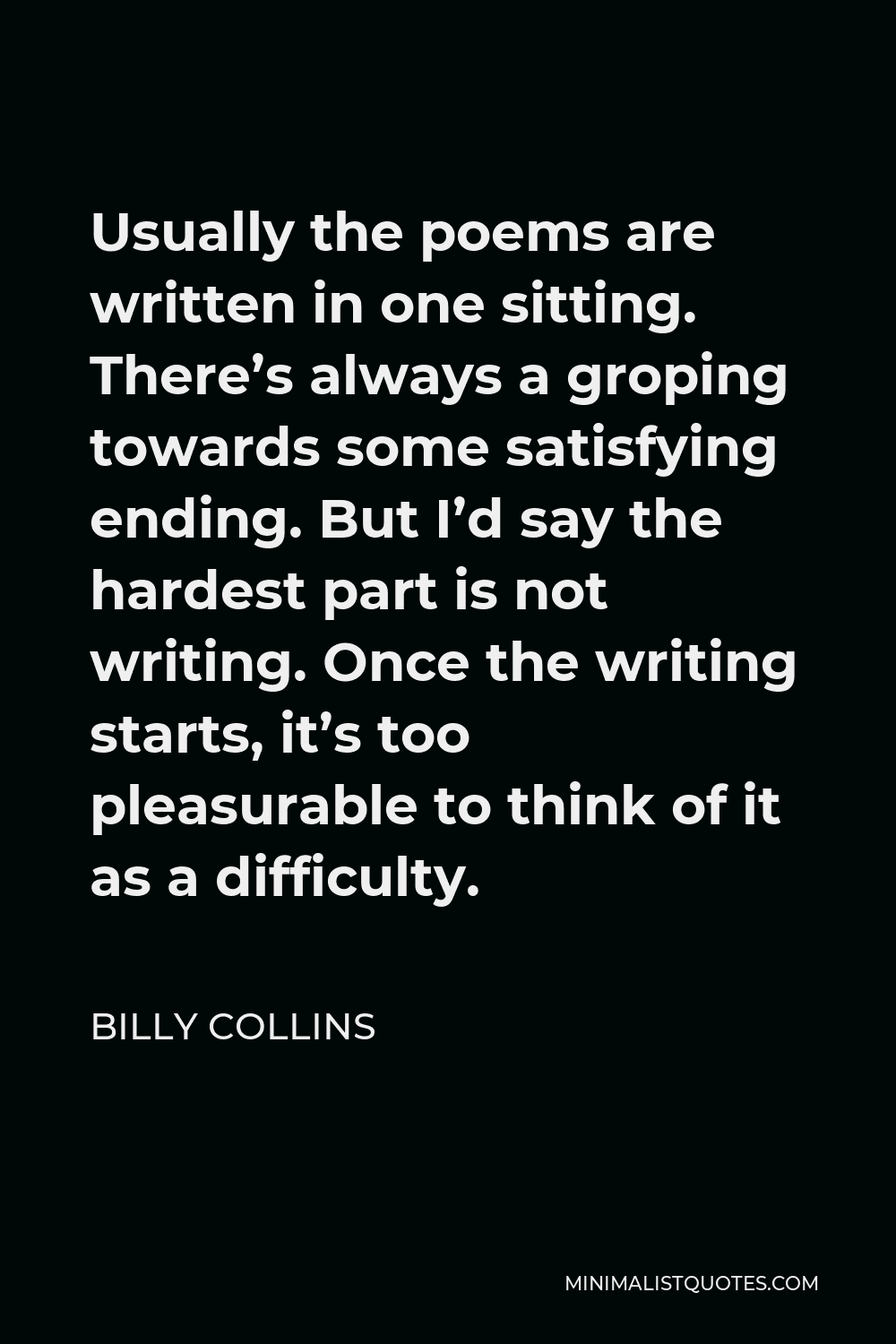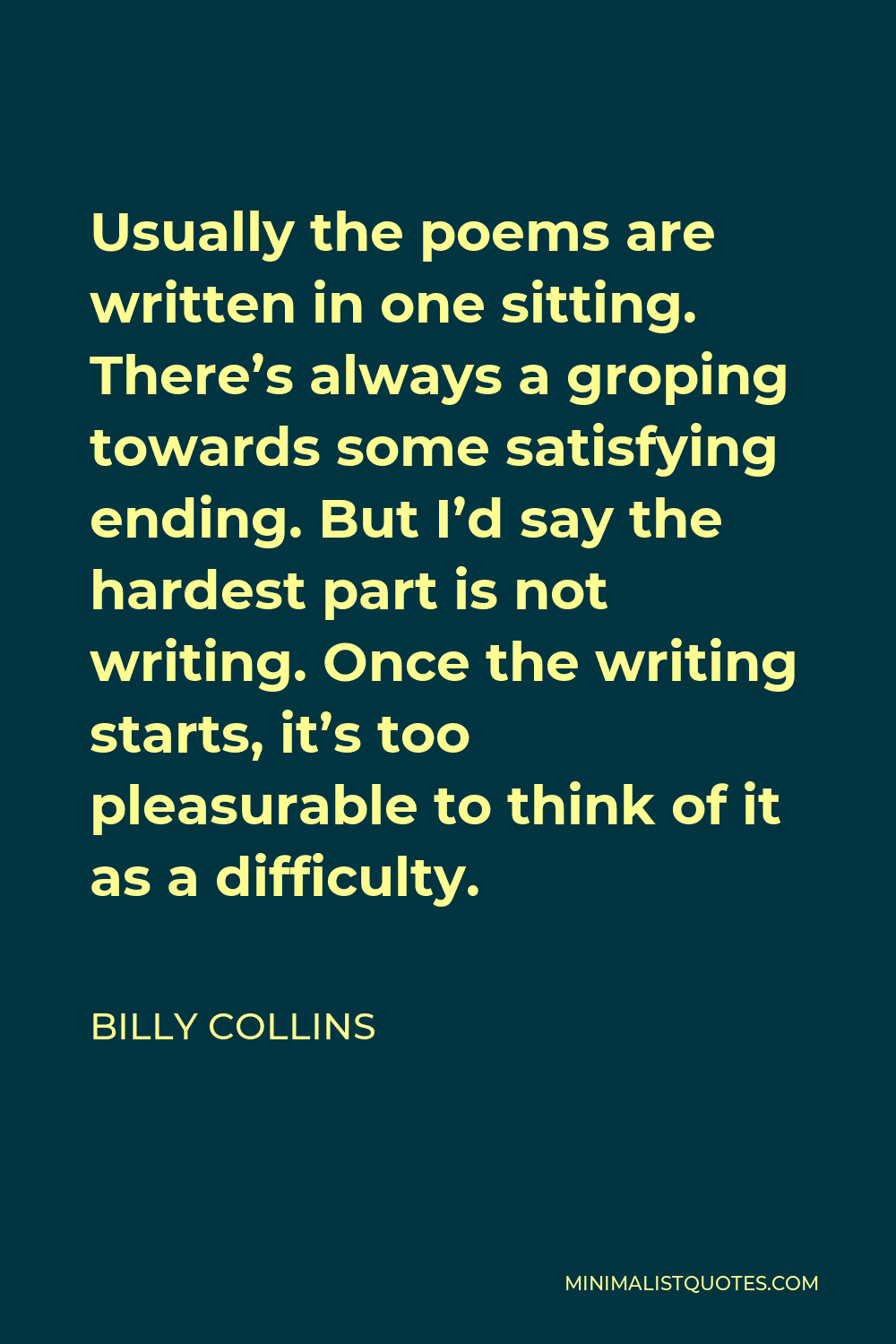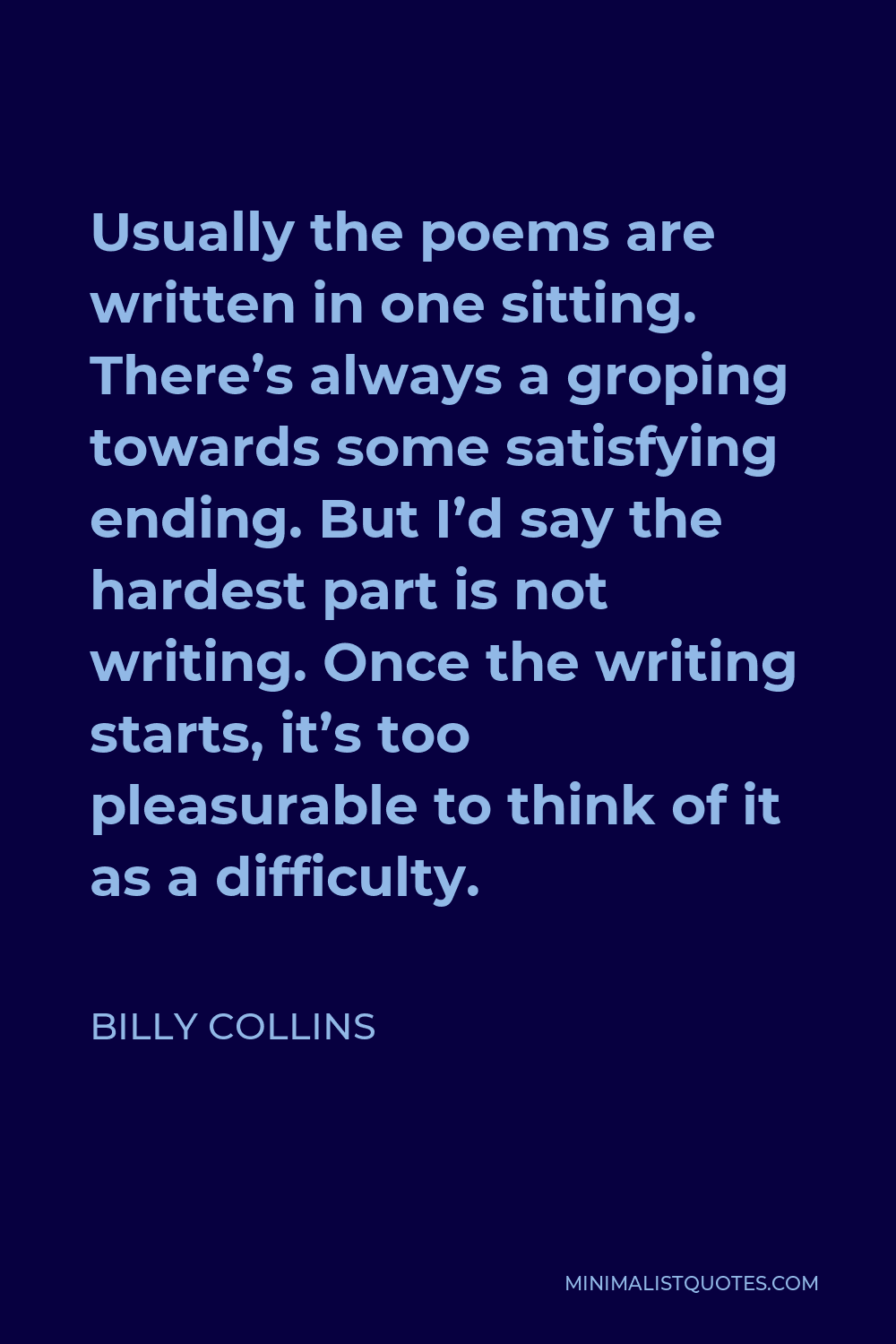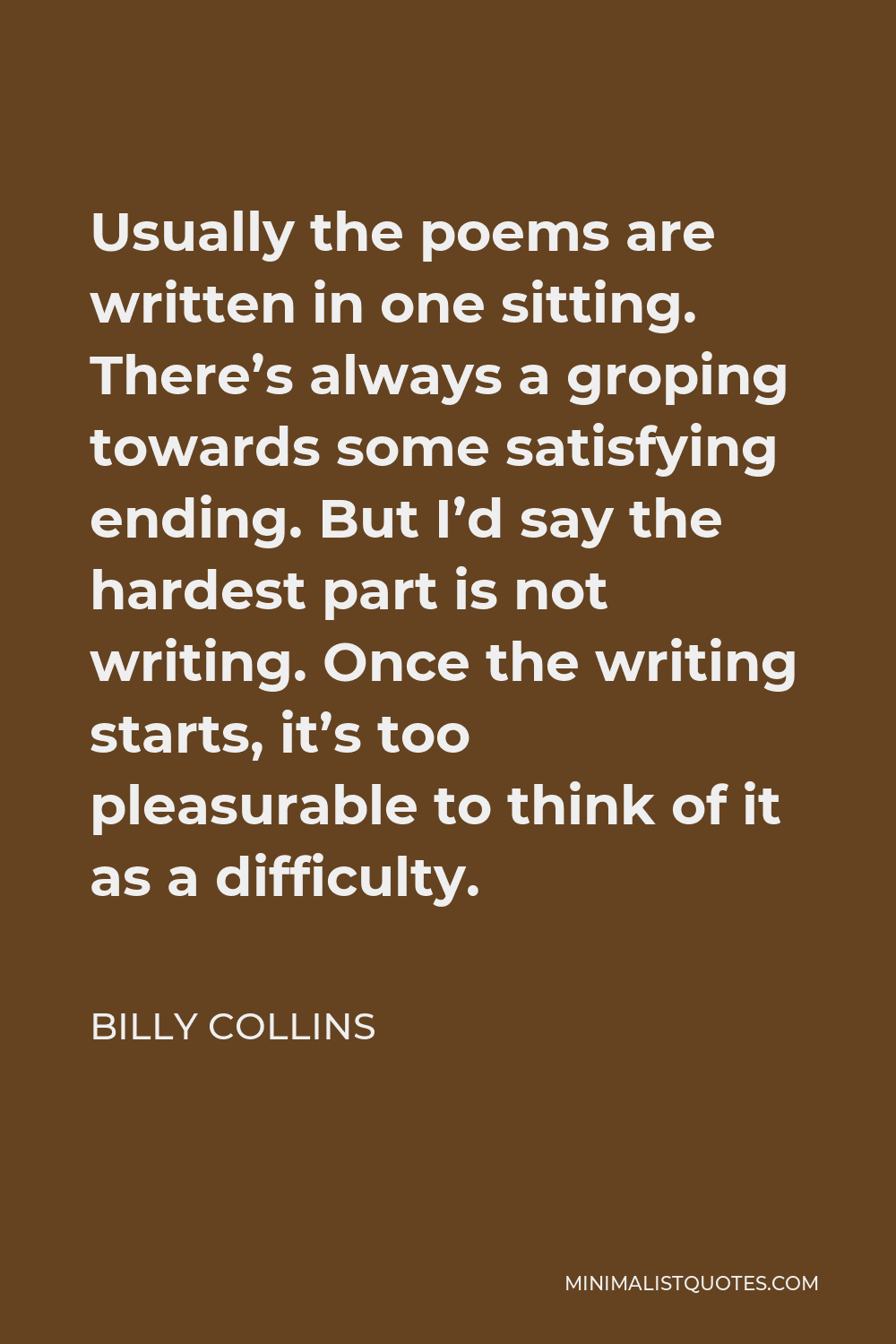It is as if one by one, the memories you used to harbor decided to retire to the Southern Hemisphere of the brain.
BILLY COLLINSUsually the poems are written in one sitting. There’s always a groping towards some satisfying ending. But I’d say the hardest part is not writing. Once the writing starts, it’s too pleasurable to think of it as a difficulty.
More Billy Collins Quotes
-





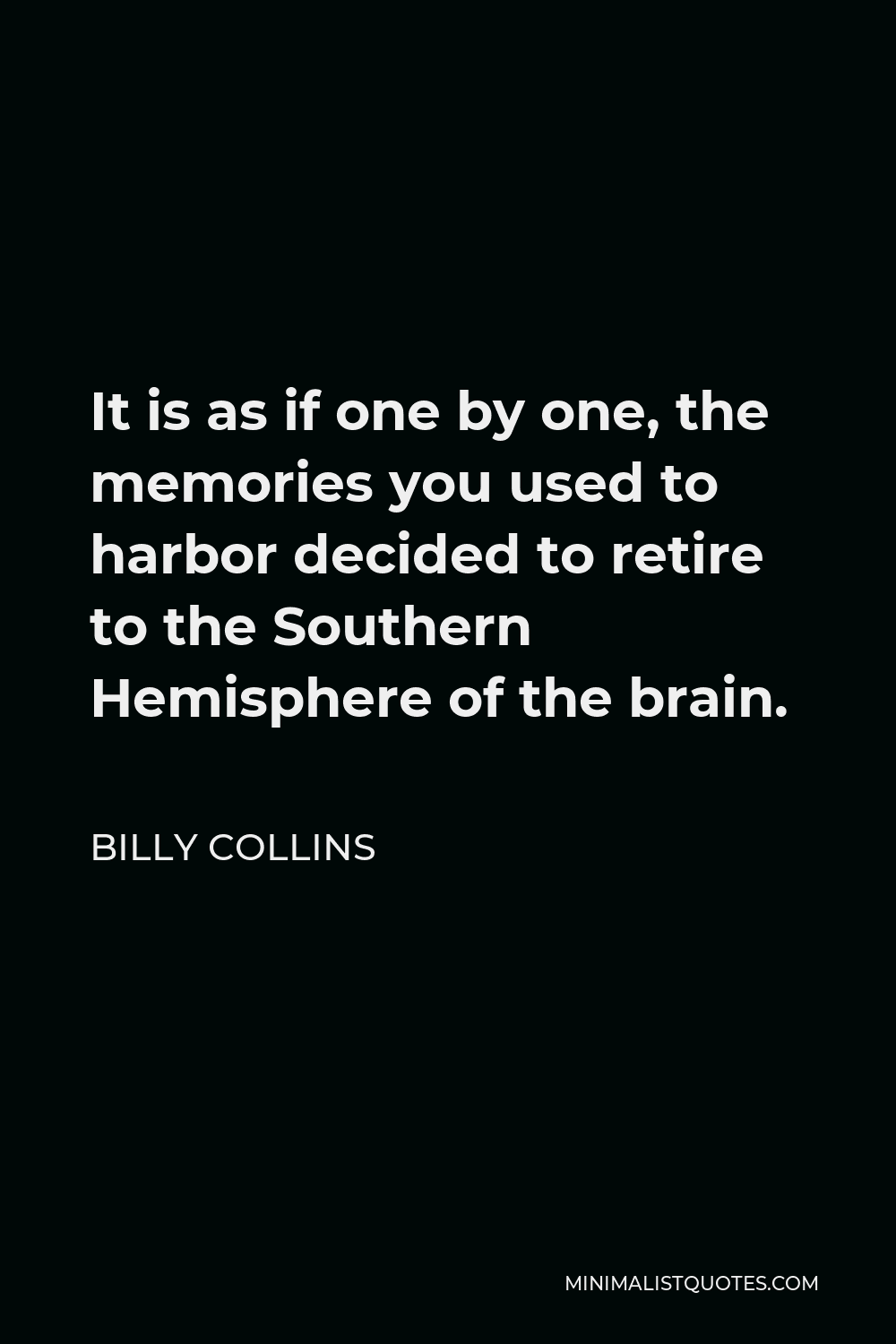
-





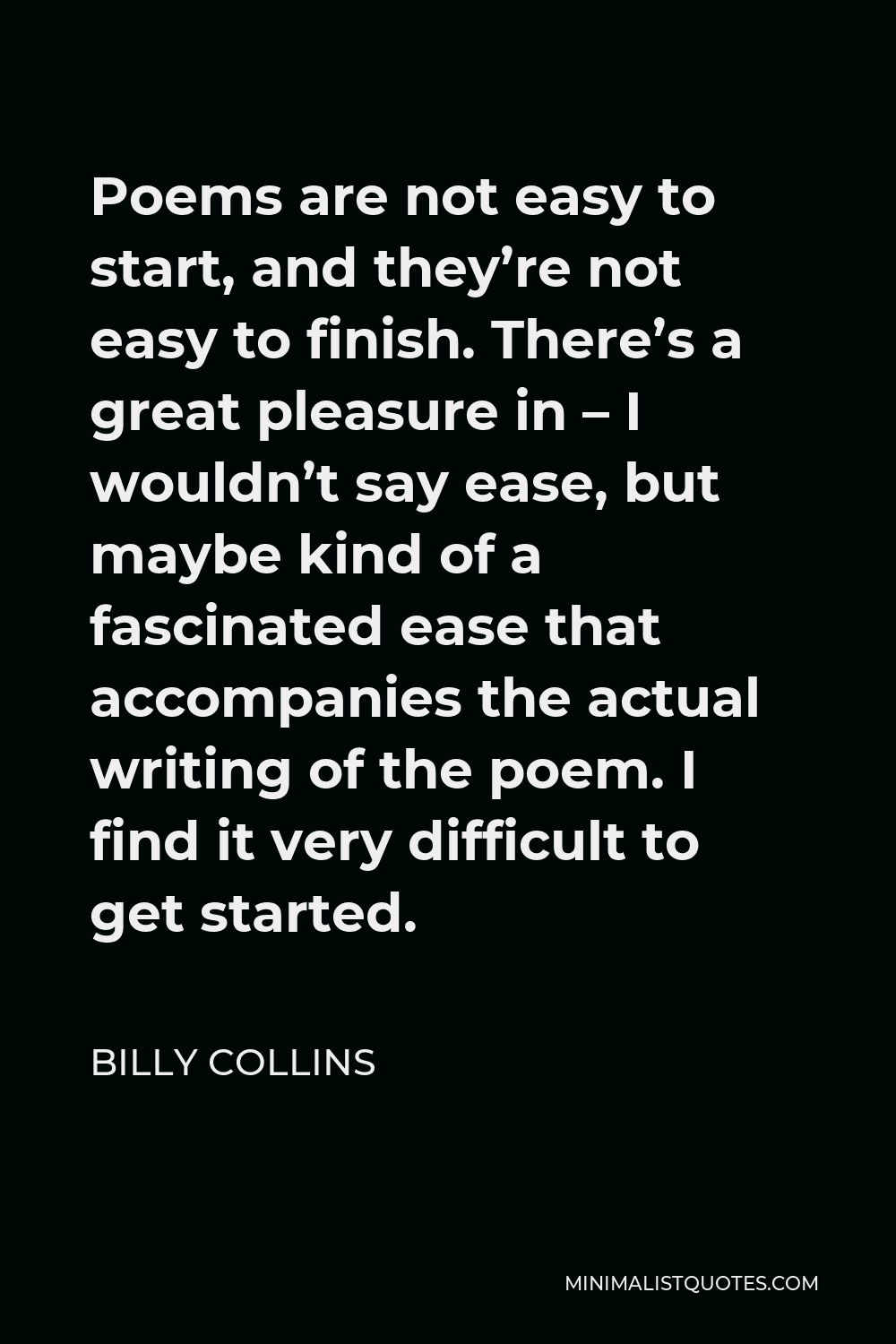
Poems are not easy to start, and they’re not easy to finish. There’s a great pleasure in – I wouldn’t say ease, but maybe kind of a fascinated ease that accompanies the actual writing of the poem. I find it very difficult to get started.
BILLY COLLINS -





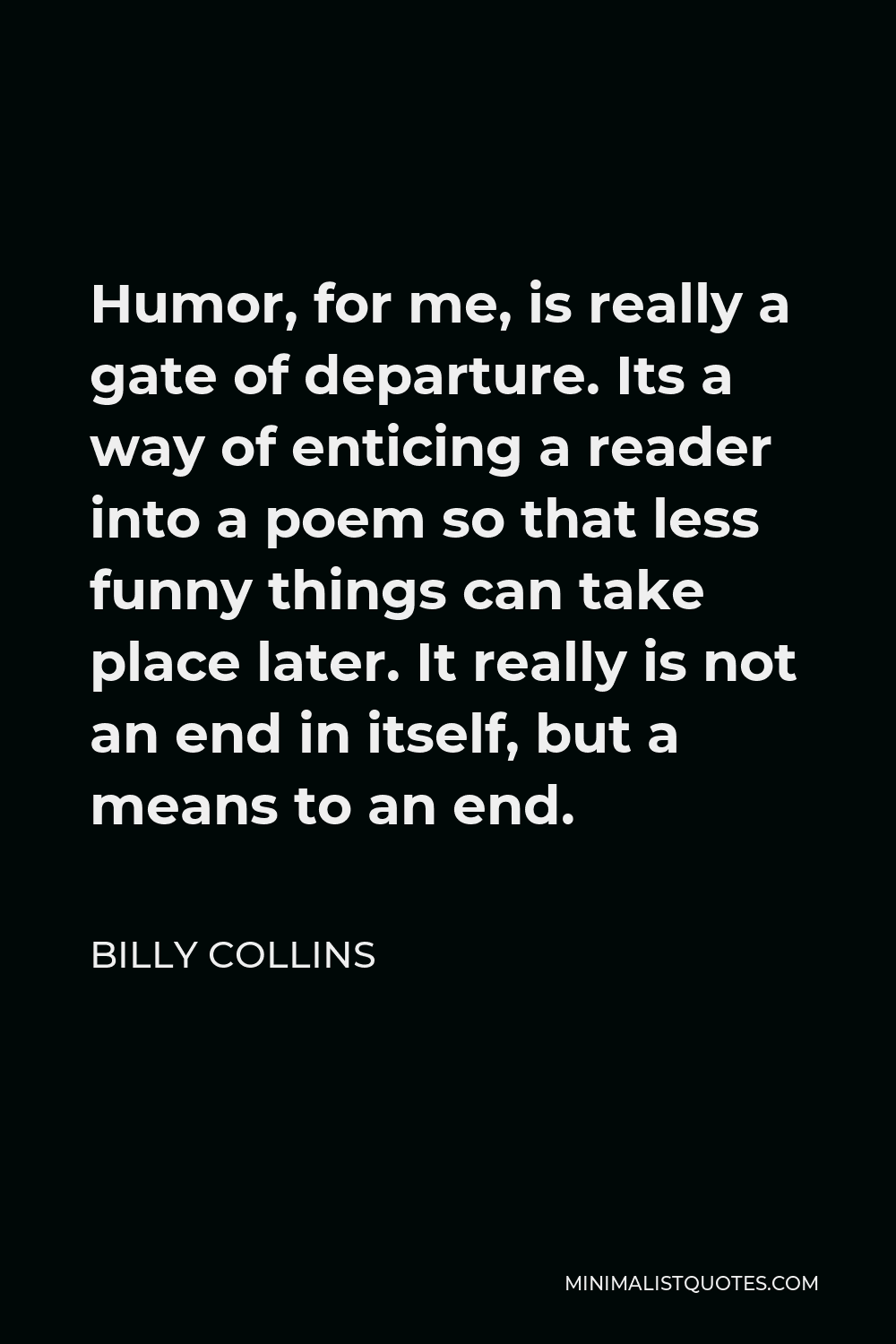
Humor, for me, is really a gate of departure. Its a way of enticing a reader into a poem so that less funny things can take place later. It really is not an end in itself, but a means to an end.
BILLY COLLINS -





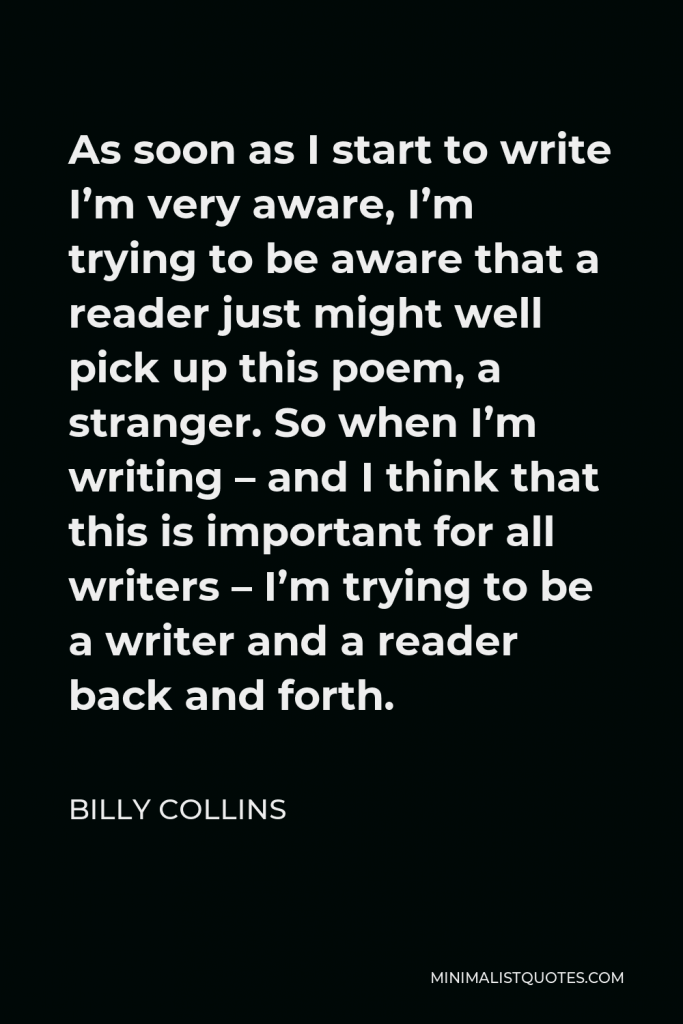

As soon as I start to write I’m very aware, I’m trying to be aware that a reader just might well pick up this poem, a stranger. So when I’m writing – and I think that this is important for all writers – I’m trying to be a writer and a reader back and forth.
BILLY COLLINS -





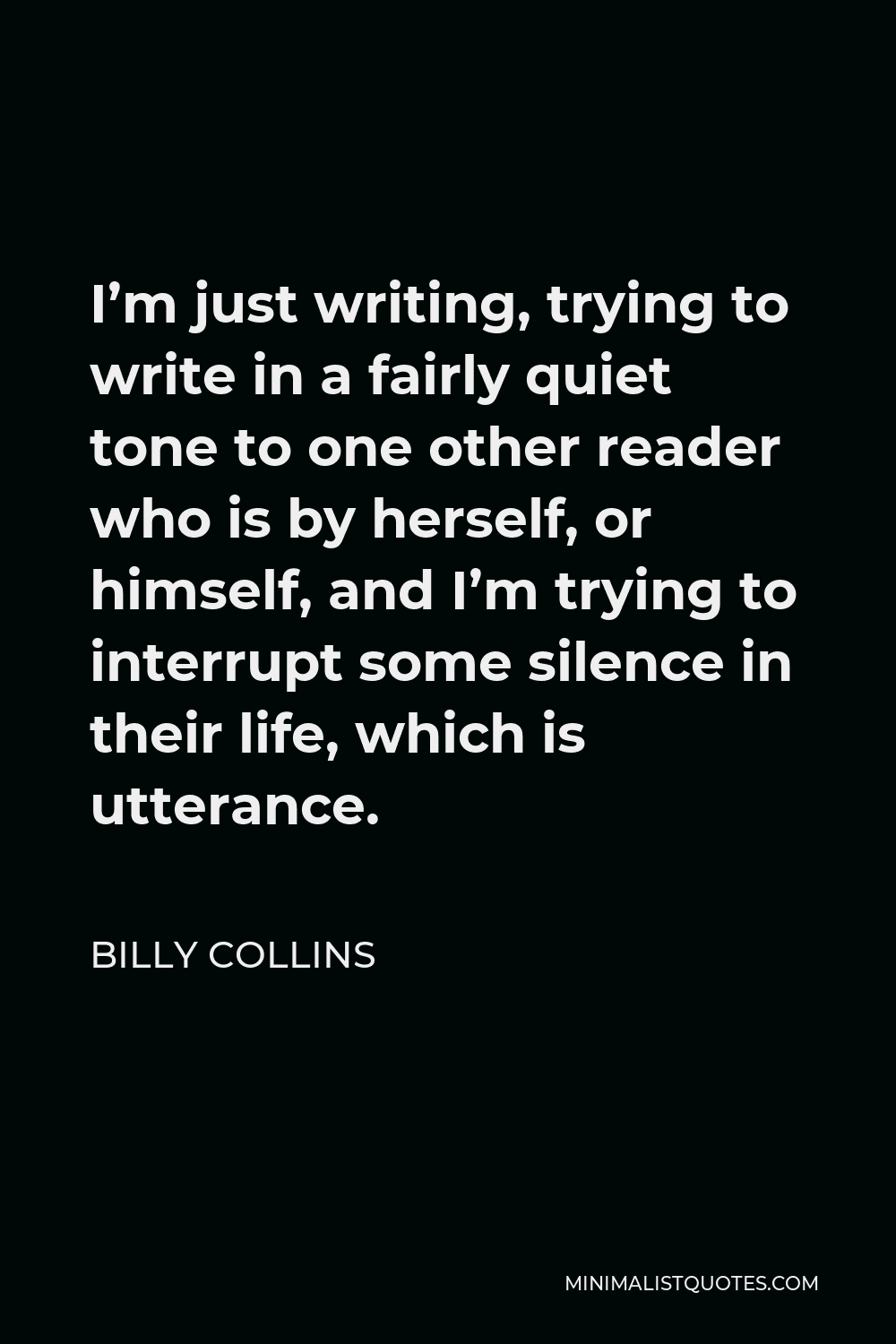
I’m just writing, trying to write in a fairly quiet tone to one other reader who is by herself, or himself, and I’m trying to interrupt some silence in their life, which is utterance.
BILLY COLLINS -





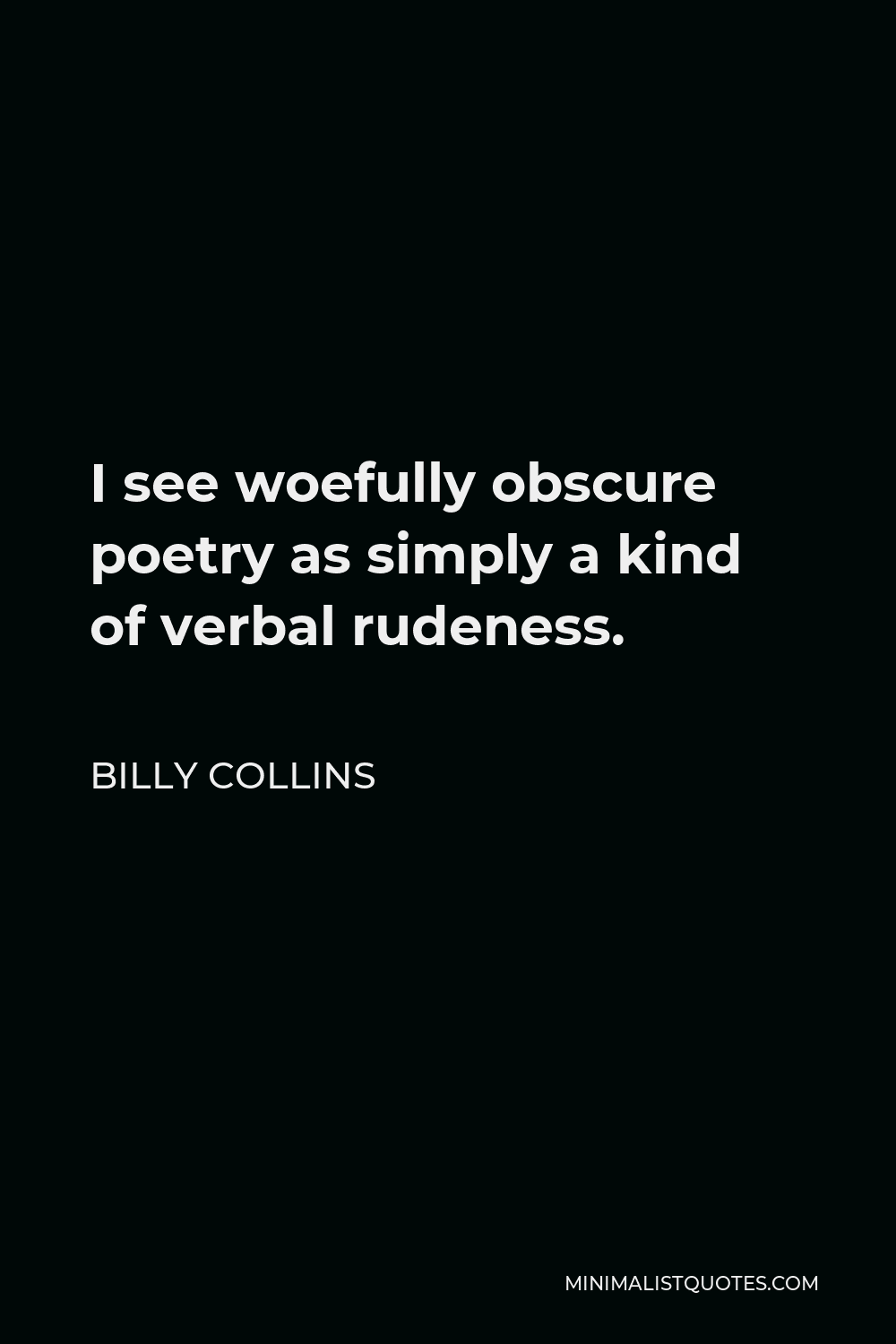
I see woefully obscure poetry as simply a kind of verbal rudeness.
BILLY COLLINS -





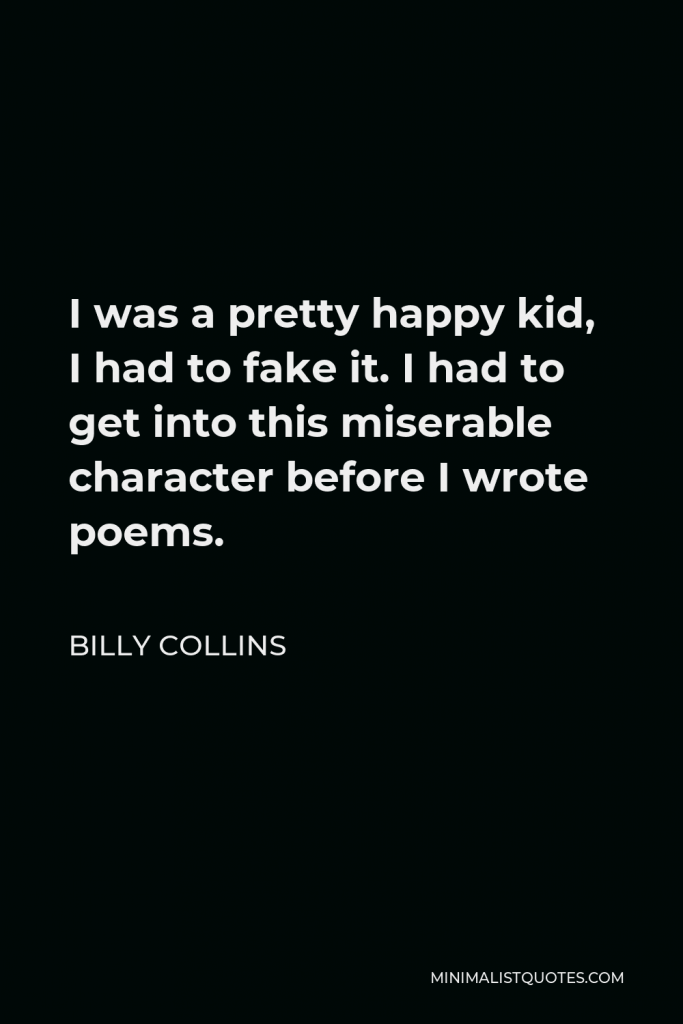

I was a pretty happy kid, I had to fake it. I had to get into this miserable character before I wrote poems.
BILLY COLLINS -





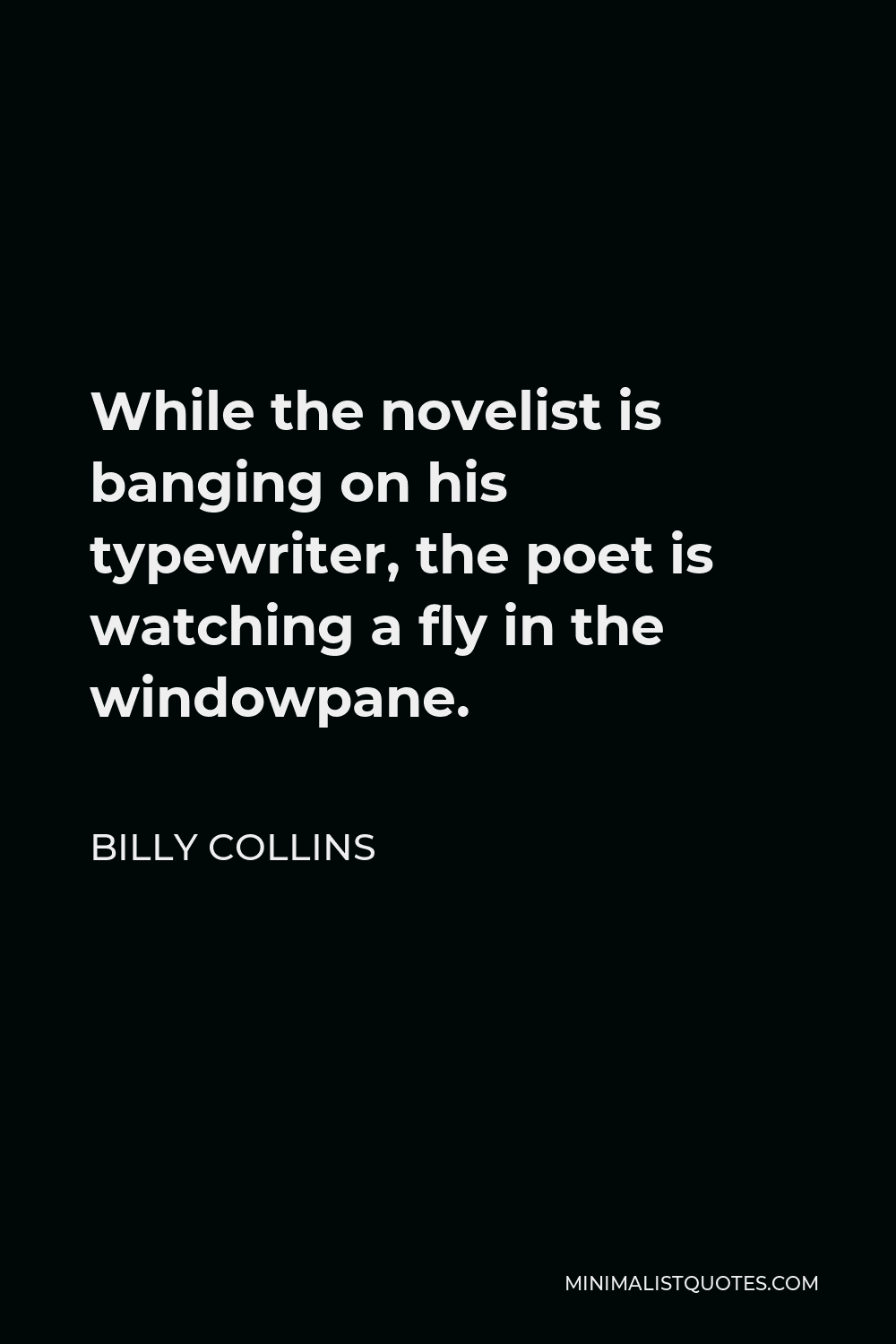
While the novelist is banging on his typewriter, the poet is watching a fly in the windowpane.
BILLY COLLINS -





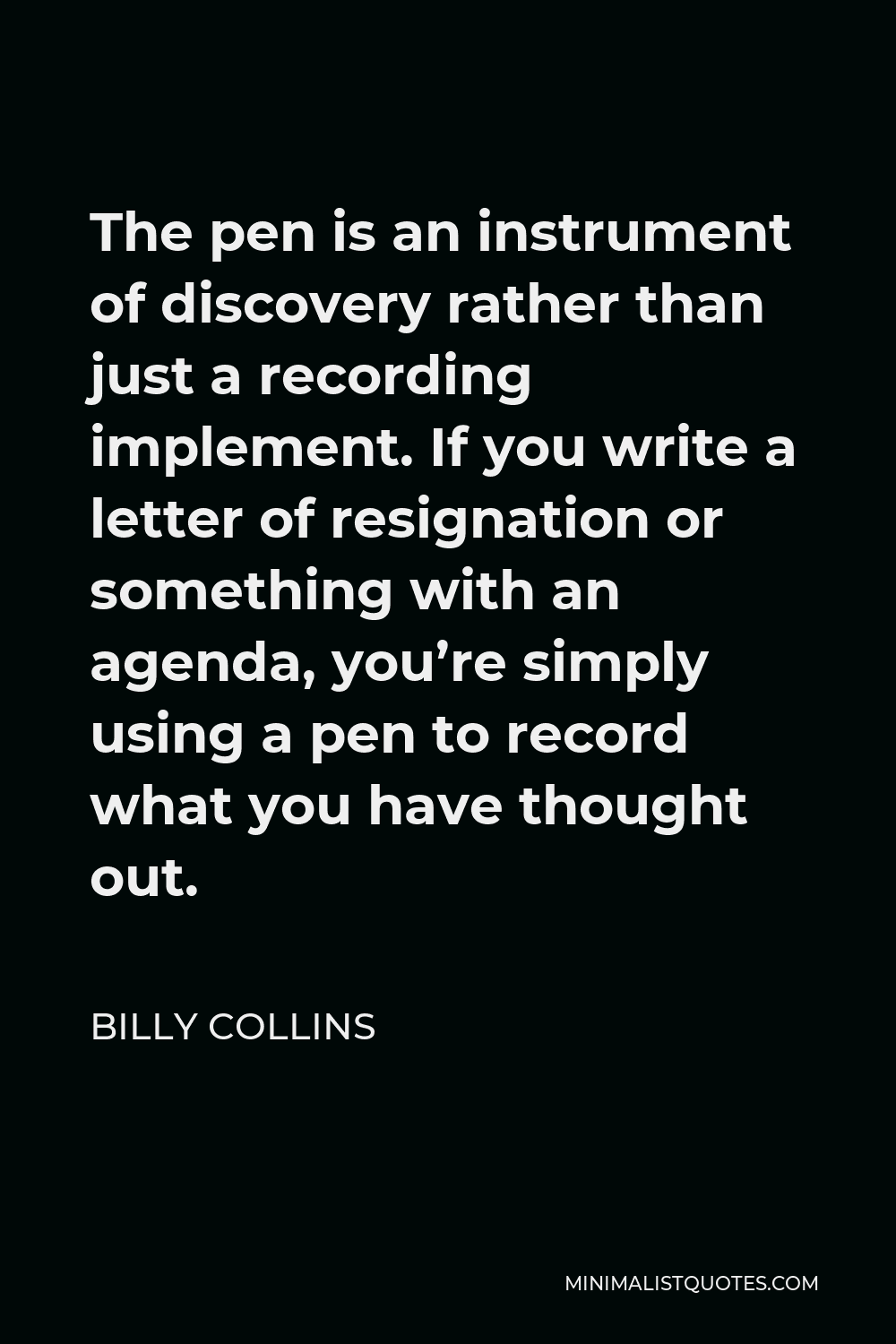
The pen is an instrument of discovery rather than just a recording implement. If you write a letter of resignation or something with an agenda, you’re simply using a pen to record what you have thought out.
BILLY COLLINS -





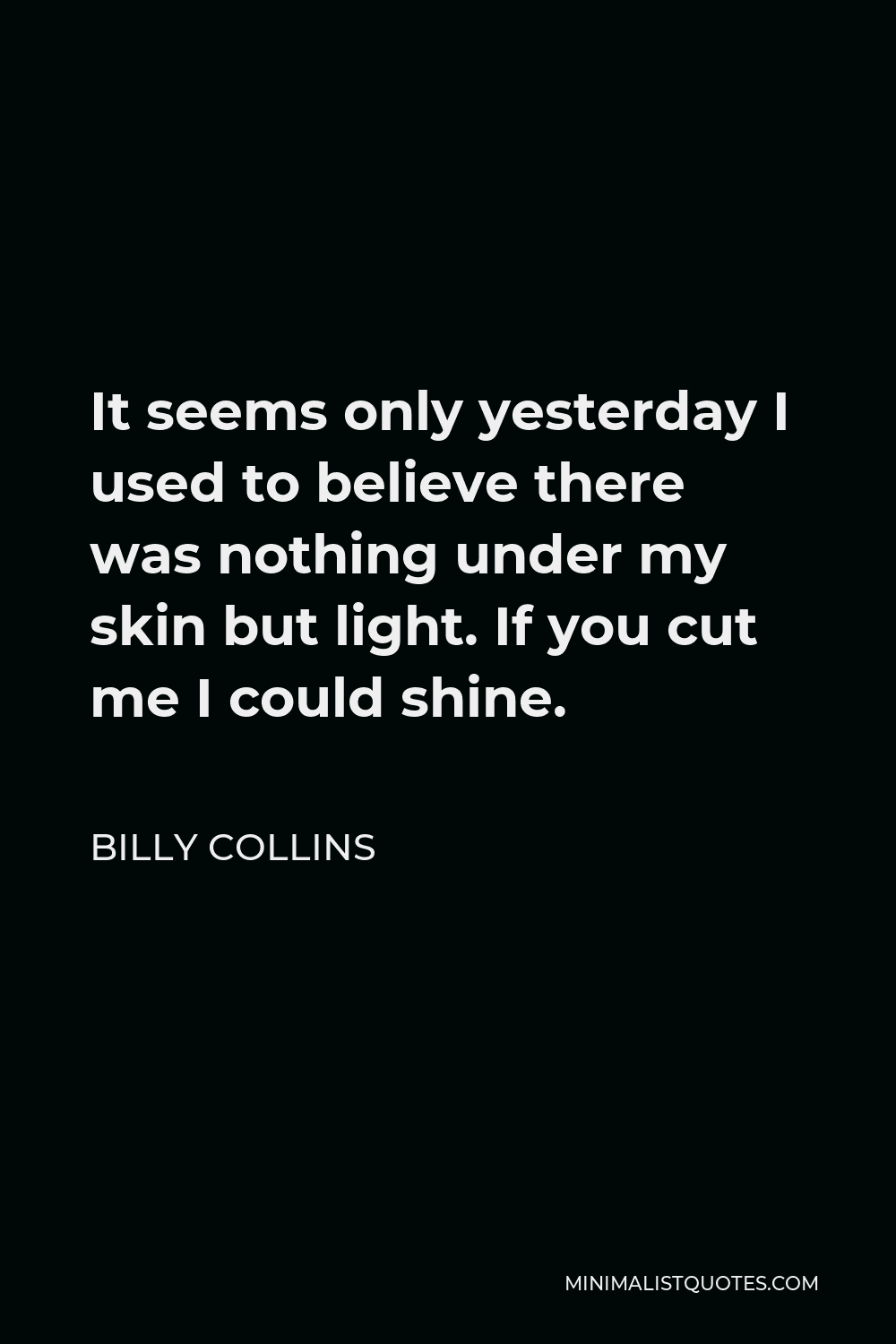
It seems only yesterday I used to believe there was nothing under my skin but light. If you cut me I could shine.
BILLY COLLINS -





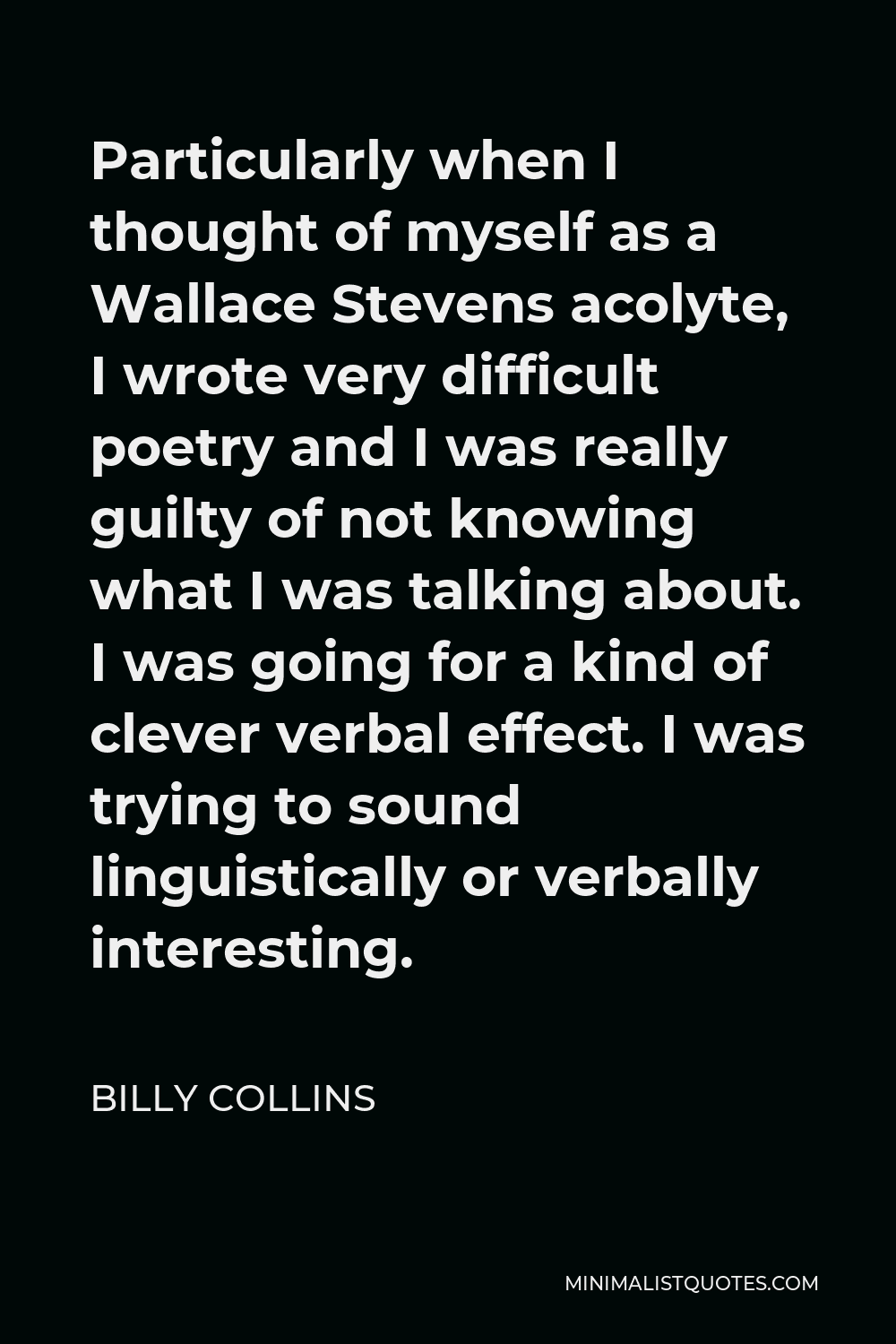
Particularly when I thought of myself as a Wallace Stevens acolyte, I wrote very difficult poetry and I was really guilty of not knowing what I was talking about. I was going for a kind of clever verbal effect. I was trying to sound linguistically or verbally interesting.
BILLY COLLINS -





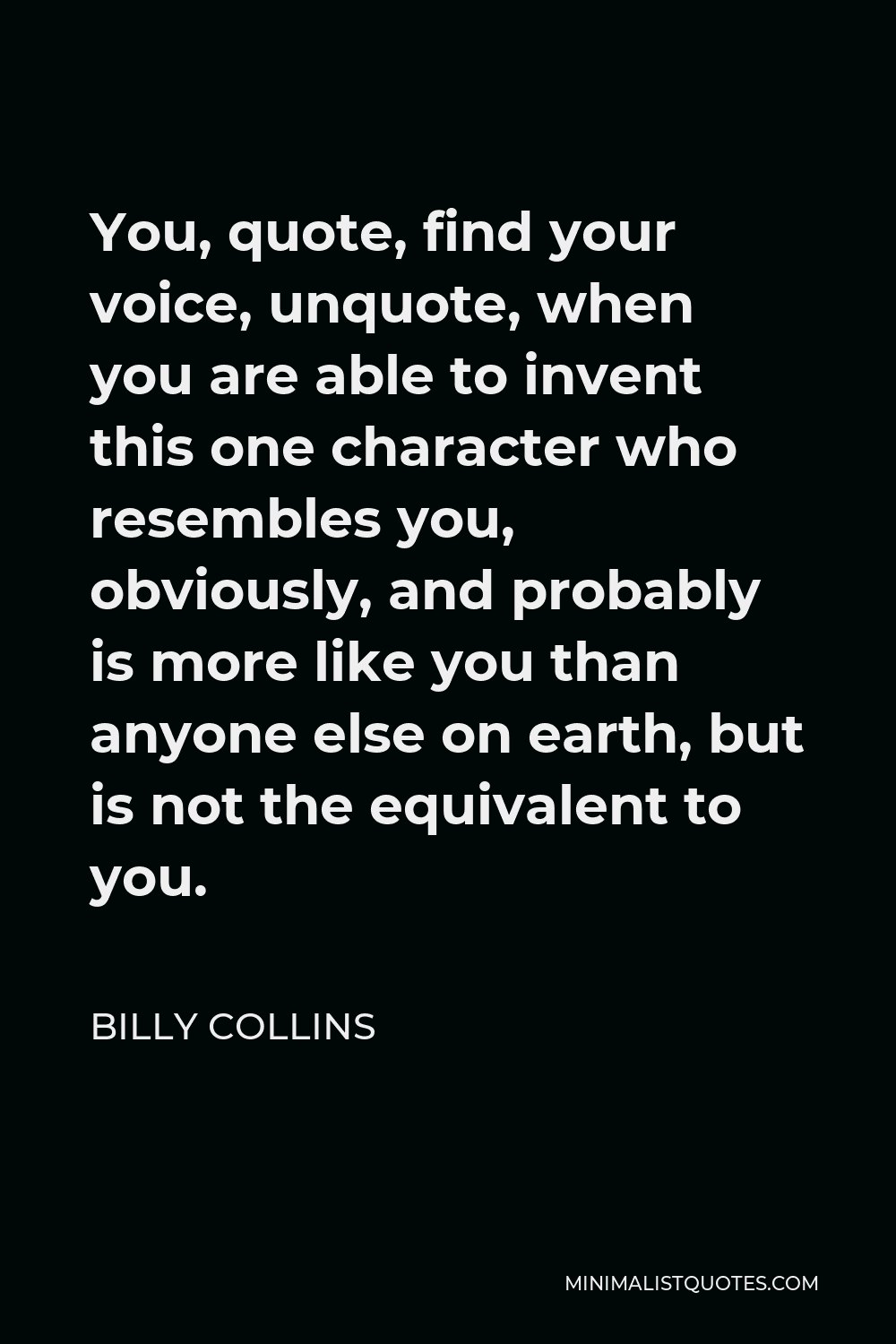
You, quote, find your voice, unquote, when you are able to invent this one character who resembles you, obviously, and probably is more like you than anyone else on earth, but is not the equivalent to you.
BILLY COLLINS -





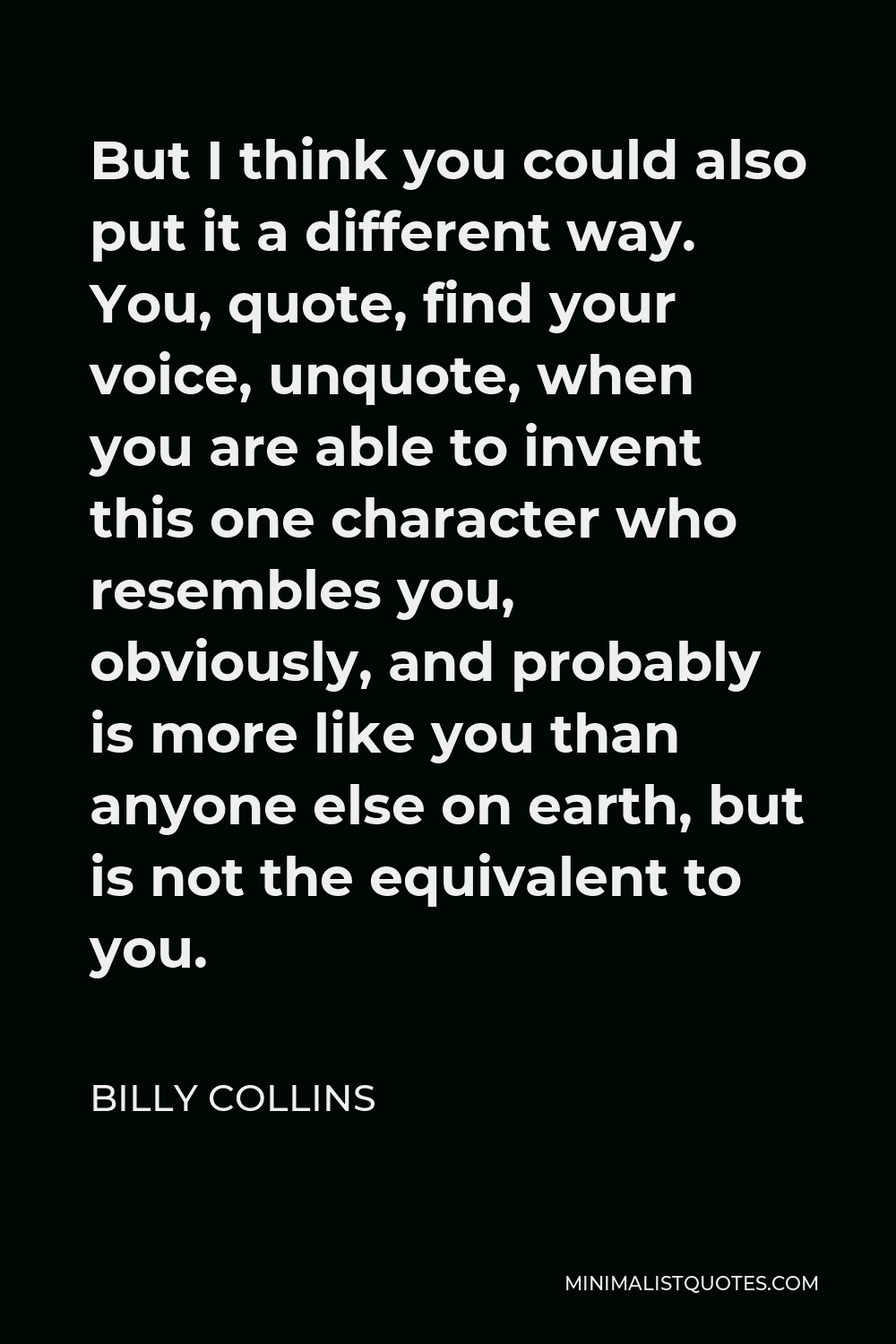
But I think you could also put it a different way. You, quote, find your voice, unquote, when you are able to invent this one character who resembles you, obviously, and probably is more like you than anyone else on earth, but is not the equivalent to you.
BILLY COLLINS -







Nationalism is a type of insanity in which the boundaries of a land replace God.
BILLY COLLINS -





![Billy Collins Quote - When you get a poem [in a public place], it happens to you so suddenly that you don’t have time to deploy your anti-poetry deflector shields that were installed in high school.](https://minimalistquotes.com/images/when-you-get-a-poem-in-a-public-place-it-happens-t.jpg)
When you get a poem [in a public place], it happens to you so suddenly that you don’t have time to deploy your anti-poetry deflector shields that were installed in high school.
BILLY COLLINS -





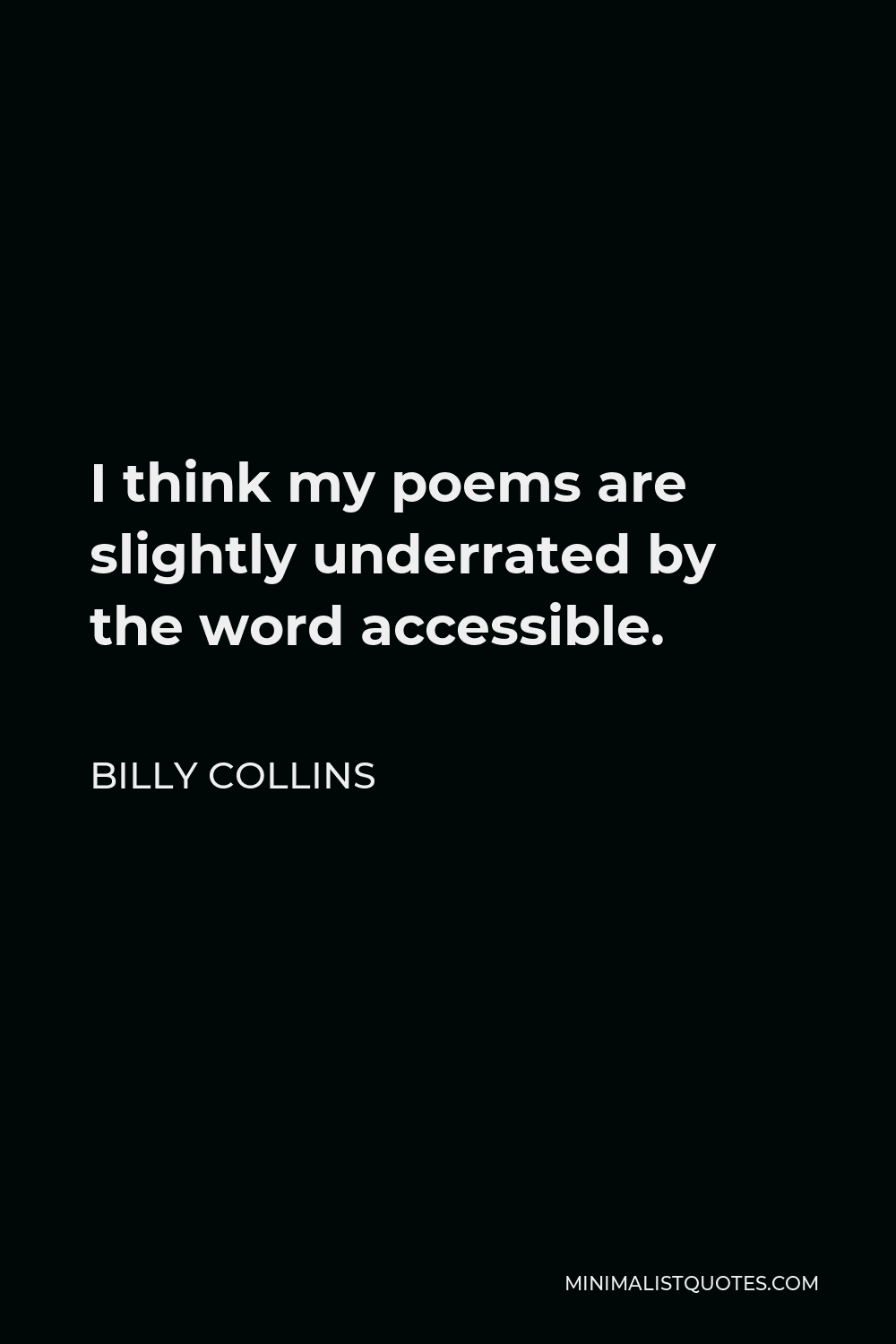
I think my poems are slightly underrated by the word accessible.
BILLY COLLINS
